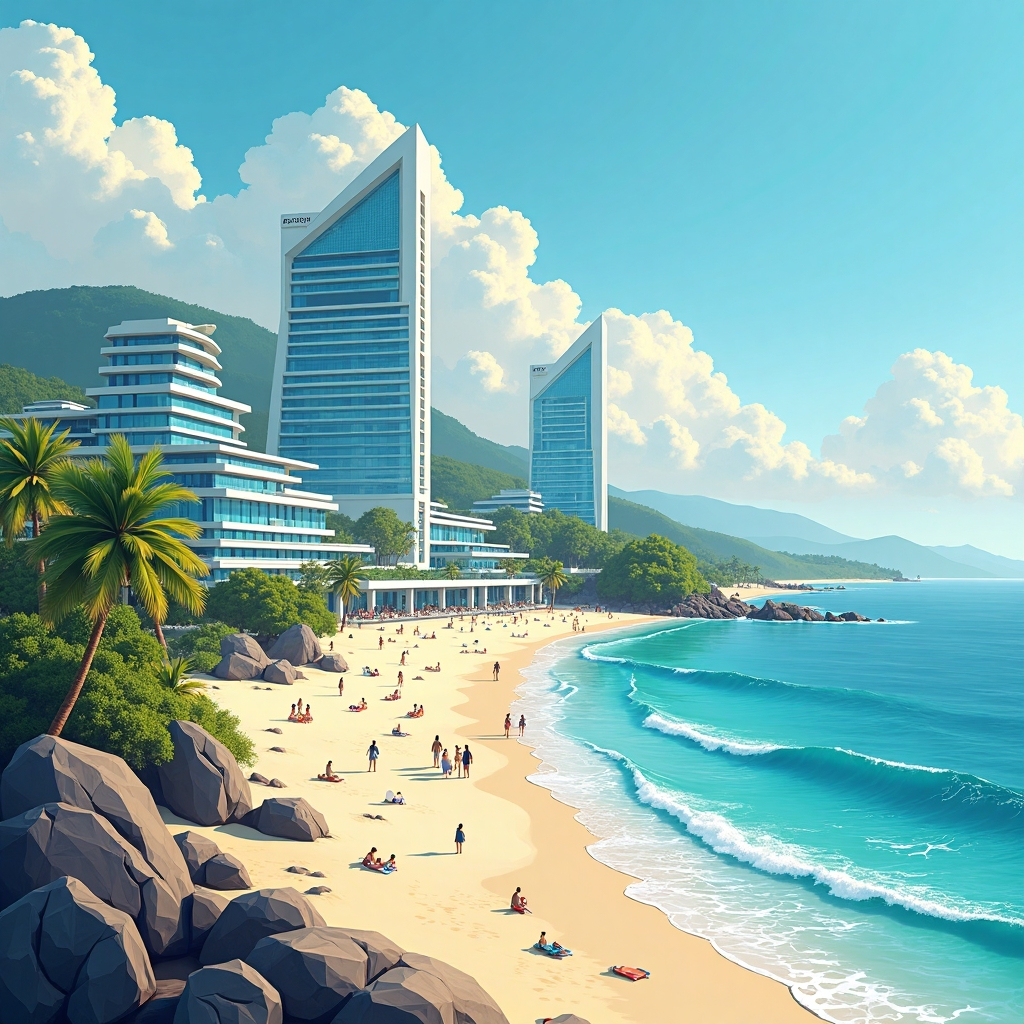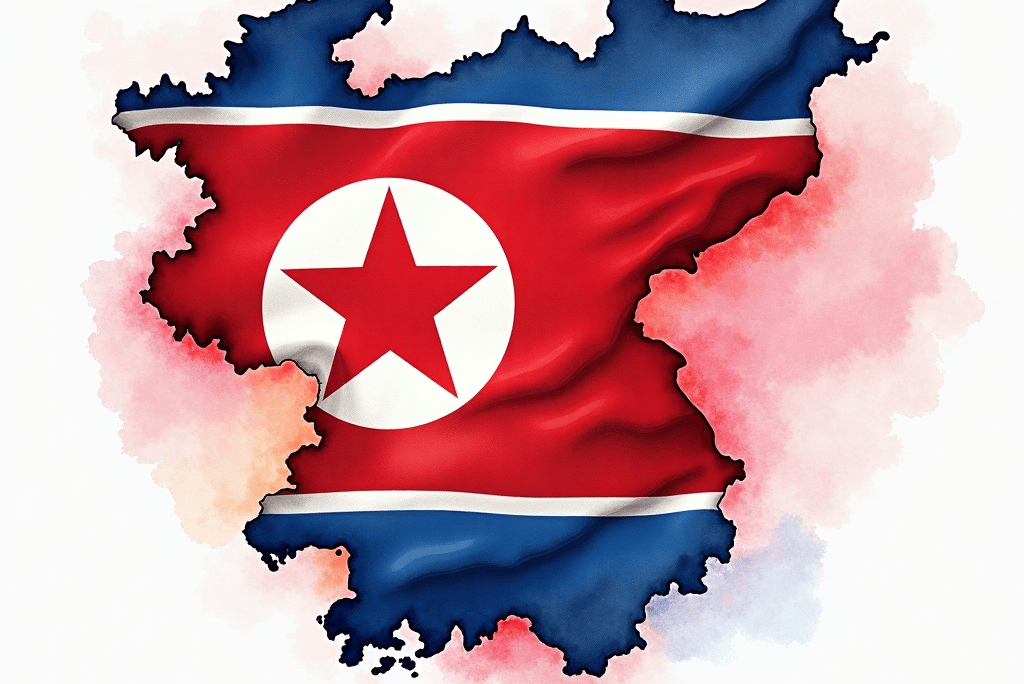Inside North Korea’s New Beach Resort
This blog offers an in-depth look at North Korea’s newly opened Wonsan-Kalma Beach Resort, exploring its significance beyond just a luxury destination.
TRAVEL
Powerful Digital Marketing (Travel Content Team)
7/7/20254 min read


North Korea has recently taken a significant step towards transforming its economy and international image by opening the much-anticipated Wonsan-Kalma Beach Resort. Officially inaugurated on July 1, 2025, this sprawling resort marks one of the most ambitious tourism projects in the country’s history. Situated on the scenic east coast of the Korean Peninsula, the resort aims to turn Wonsan, a port city with natural beauty, into a premier destination for both domestic and, eventually, international visitors. This bold venture reflects North Korea’s strategic intent to diversify its economy beyond its traditional industrial and military focus by tapping into the tourism sector.
The development of the Wonsan-Kalma Beach Resort began in 2018, with grand plans to create a modern, large-scale tourist complex that would rival resorts elsewhere in Asia. However, the project faced numerous hurdles over the years. International sanctions aimed at curbing North Korea’s nuclear ambitions significantly slowed down the import of materials and technology necessary for construction. Additionally, the global COVID-19 pandemic forced delays due to border closures and disruptions in supply chains. Despite these setbacks, the government pushed forward, signalling the resort’s importance within its broader economic strategy. Kim Jong Un himself has underscored the significance of tourism as a means to bolster economic growth and reduce the country’s dependence on traditional sectors. The resort’s opening, after years of perseverance, is a clear manifestation of this vision.
Spanning the entire Kalma Peninsula, the resort boasts a variety of attractions and facilities designed to cater to a wide range of visitors. Among its standout features is an underwater hotel that offers a unique experience for tourists, along with luxury hotels that include presidential suites. There is also a sprawling flower park, exhibition halls, and various entertainment and recreational amenities designed to enhance visitor enjoyment. The resort’s capacity is impressive, able to accommodate up to 20,000 guests, making it one of the largest single-owner resorts globally. To support such scale, the infrastructure around Wonsan has been upgraded significantly. This includes the newly constructed Wonsan-Kalma International Airport, which aims to facilitate the arrival of tourists, as well as a tram system that provides easy access across the resort area. These infrastructural improvements highlight the seriousness with which North Korea is pursuing its tourism ambitions.
The resort officially opened its doors to North Korean citizens first, with the government hosting an opening ceremony attended by local officials and citizens eager to experience the new facility. This initial phase serves not only to test the operations of the resort but also to foster a sense of national pride and showcase a more modern side of the country to its own people. While North Koreans have started enjoying the beachside attractions, the prospect of welcoming international tourists remains more complicated. Since early 2024, some Russian tourists have been allowed to visit the resort, but broader international access is still highly restricted. This limitation is largely due to ongoing geopolitical tensions, strict border controls, and concerns over international sanctions. Whether the resort will evolve into a significant international tourism hub depends largely on future diplomatic developments and the willingness of North Korea to ease travel restrictions.
Economically, the Wonsan-Kalma Beach Resort represents a strategic effort by North Korea to revitalise its economy. Tourism is seen as a potential source of much-needed foreign currency and employment opportunities. By developing a high-profile, attractive tourist destination, North Korea hopes to showcase a more positive image to the world, one that contrasts with the common narratives of political isolation and hardship. The government envisions the resort as a symbol of modernisation and economic progress. However, several challenges could temper these hopes. Apart from geopolitical issues, there are concerns about the country’s limited infrastructure beyond the resort itself, human rights criticisms that might deter Western tourists, and the overall perception of North Korea as a risky travel destination. These factors create a complex environment for the resort’s success.
Moreover, the opening of the Wonsan-Kalma Beach Resort comes at a time when the global tourism industry is still recovering from the effects of the pandemic, with travellers gradually regaining confidence to explore new destinations. The resort’s unique appeal, combining natural coastal beauty with innovative amenities like the underwater hotel, could attract niche groups of tourists interested in adventure and off-the-beaten-path experiences. Regional neighbours and select international visitors might find value in visiting Wonsan, especially if North Korea can offer secure and well-organised travel options. However, the broader international tourism market will likely take a cautious approach, closely watching how North Korea manages health protocols, safety, and diplomatic relations.
From a geopolitical perspective, the resort serves multiple purposes beyond tourism revenue. It acts as a platform for North Korea to engage, albeit limitedly, with the outside world and to potentially soften its international image. The government can leverage the resort to promote controlled cultural exchanges and diplomatic softening through tourism. However, the country’s overall international standing and its internal policies will heavily influence how much the resort can fulfil these roles. If political tensions escalate or sanctions become stricter, the resort may face further limitations in attracting foreign visitors. Conversely, if North Korea embarks on a path of cautious opening and cooperation, the Wonsan-Kalma Beach Resort could become a gateway to more meaningful engagement.
In conclusion, the Wonsan-Kalma Beach Resort is a landmark project for North Korea, symbolising both ambition and the desire for economic diversification. While its immediate impact might be mostly domestic, the resort’s long-term success hinges on broader political and economic factors that remain uncertain. Its modern facilities and strategic location make it a potentially attractive destination, but North Korea’s geopolitical challenges pose significant hurdles. As the country continues to navigate complex global dynamics, the resort could play a key role in shaping North Korea’s economic future and possibly its international relations. For now, Wonsan-Kalma stands as a bold statement of intent, a glimpse into what North Korea envisions as a new chapter in its development.



WORKING HOURS
Monday - Friday 9:00 AM - 6:00 PM
Saturday - Sunday 8:00 AM - 12:00 PM
Want to Call? Ask our Powerful Bot for the Number
ADDRESS
7A High Street
Barnet
Greater London
EN5 5UE
